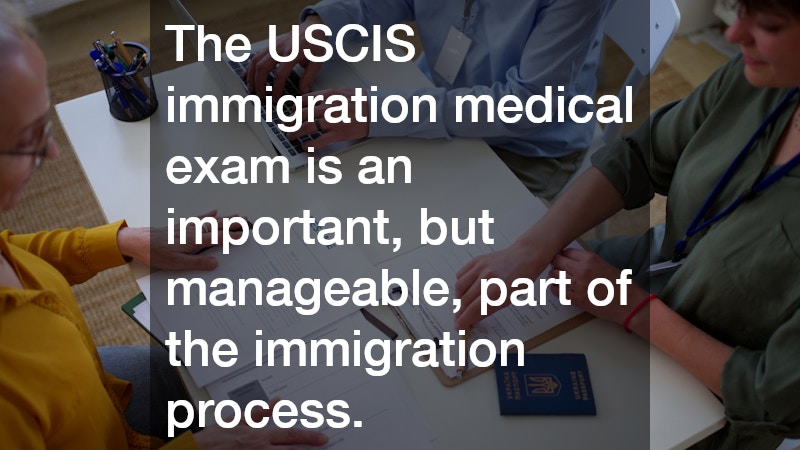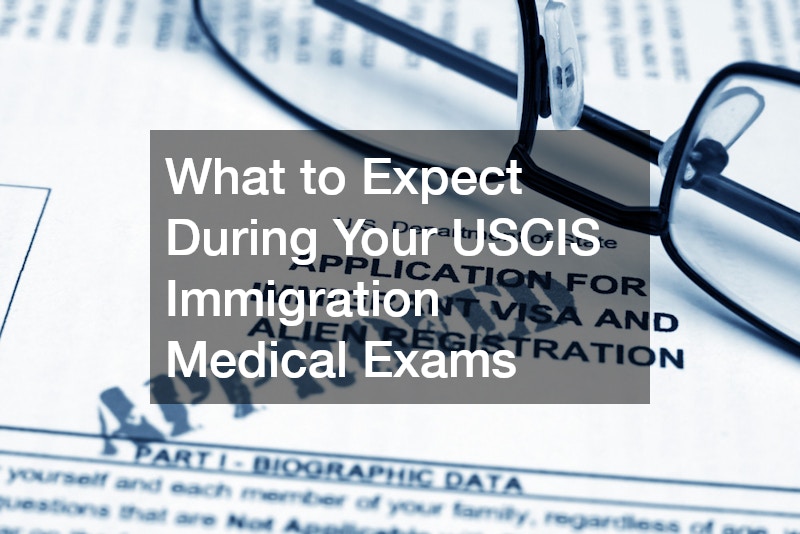If you are applying for lawful permanent residence in the United States, one important step in your immigration journey is the uscis immigration medical exams. These exams are required by the U.S. Citizenship and Immigration Services (USCIS) to ensure that applicants are medically admissible to the country. While the medical exam may seem intimidating at first, understanding what it entails and how to prepare can help ease any concerns.
In this article, we will guide you through each stage—from preparation to what happens after the exam—so you know exactly what to expect.
Preparing for Your Uscis Immigration Medical Exam
Required Documentation and Forms
Before attending your immigration medical exam, it’s crucial to have the proper documents ready. One of the most essential forms is Form I-693, officially called the Report of Medical Examination and Vaccination Record. This form is completed by the civil surgeon after your medical exam and is submitted to USCIS as part of your green card or adjustment of status application. Do not fill out this form yourself before your appointment, as it must be completed and signed by the authorized physician.
You should also bring valid identification, such as a passport or a government-issued photo ID, to verify your identity during the exam. If you have prior vaccination records, bring those as well, since they help the civil surgeon determine if you need additional immunizations. For minors, a birth certificate or guardianship documents may also be required.
It is a good idea to bring a list of any medications you are currently taking, along with any relevant medical records. This includes previous diagnoses, surgical histories or mental health treatment details. Having all this information on hand can help the civil surgeon complete your evaluation accurately and efficiently.
Choosing a Civil Surgeon
Only physicians designated by USCIS as civil surgeons are authorized to perform immigration medical exams. To find an authorized doctor near you, USCIS offers an online tool called “Find a Doctor,” which allows you to search for civil surgeons by location. It’s a good idea to schedule your appointment well in advance, as some providers may have long wait times.
Before your visit, contact the civil surgeon’s office to confirm their fees and accepted payment methods, since costs can vary widely. Ask what documents you need to bring and whether you should arrive fasting for any blood tests. Having clear communication ahead of time can reduce surprises on exam day.
It is also worth noting that civil surgeons are required to follow CDC guidelines when conducting USCIS immigration medical exams. This ensures consistency in the evaluation process and helps maintain public health standards. Knowing this can provide peace of mind as you prepare.
What to Expect During the Exam
Medical History and Physical Examination
When you arrive for your USCIS immigration medical exams, the civil surgeon will start by reviewing your complete medical history. They will ask questions about any past illnesses, surgeries, medications you currently take, and any chronic or ongoing health conditions.
The physical exam itself is generally straightforward and non-invasive. The doctor will check your height, weight, blood pressure, and vital signs. They will also perform a general physical exam, assessing your heart, lungs, abdomen, skin, eyes, ears, nose, and throat.
One mandatory part of the exam is tuberculosis (TB) screening. This usually involves a TB skin test or blood test. If the test results are positive or if you have symptoms, the doctor may order a chest X-ray. Additionally, blood and urine samples are commonly collected to screen for communicable diseases such as syphilis and gonorrhea, which could affect your admissibility.
Vaccination Requirements
USCIS requires that all applicants be vaccinated against specific vaccine-preventable diseases. These include immunizations for measles, mumps, rubella, tetanus, diphtheria, hepatitis A and B, influenza (during flu season), varicella (chickenpox), and COVID-19. The civil surgeon will review your vaccination history and may administer any missing vaccines during the appointment or refer you to another provider.
If you have medical conditions that prevent vaccination, or if you seek exemptions based on religious or moral grounds, these must be properly documented and approved by USCIS. Be prepared to provide any supporting documentation if you qualify for a waiver.
After the USCIS Immigration Medical Exam
Reviewing Your Results
Once the medical exam is complete, the civil surgeon will fill out and sign your Form I-693. This form includes your exam results, vaccination history, and the surgeon’s certification of your health status. The form is placed in a sealed envelope, which must remain unopened by you to ensure it is accepted by USCIS.
Next Steps for Submission
Your Form I-693 medical report is usually valid for two years from the date of the civil surgeon’s signature. Timing is important: if you are submitting it as part of your adjustment of status (Form I-485) application, the medical exam must be recent enough to remain valid during the processing time.
You can submit the sealed Form I-693 either together with your adjustment of status application or bring it to your USCIS interview. If you have already submitted your application but did not include the medical exam, USCIS may send you a Request for Evidence (RFE) asking for it. It’s important to respond promptly to any RFEs to avoid delays or denials.
The USCIS immigration medical exam is an important, but manageable, part of the immigration process. Being well-prepared with the right documents, choosing an authorized civil surgeon, and knowing what to expect during the exam will help you navigate this step smoothly.


